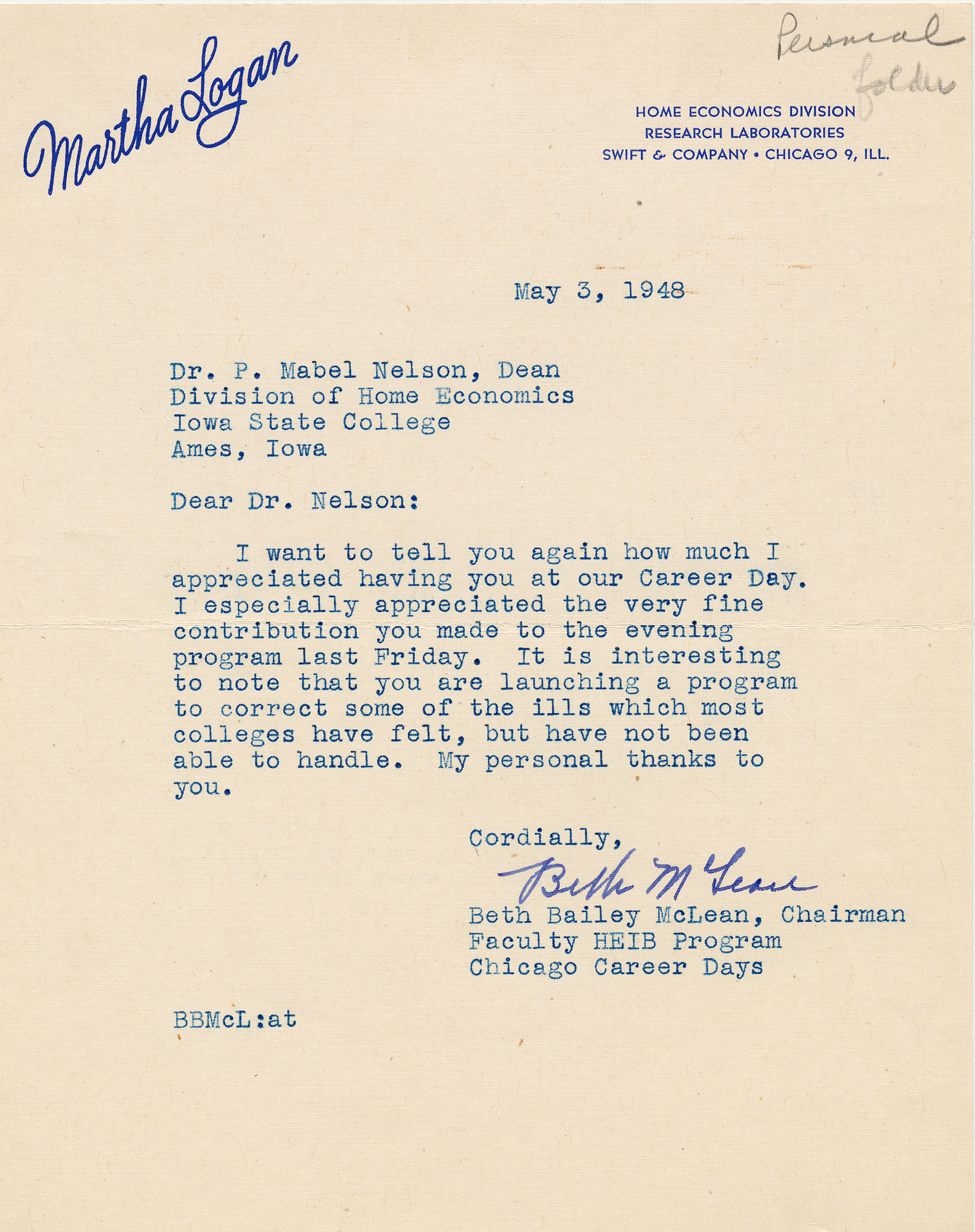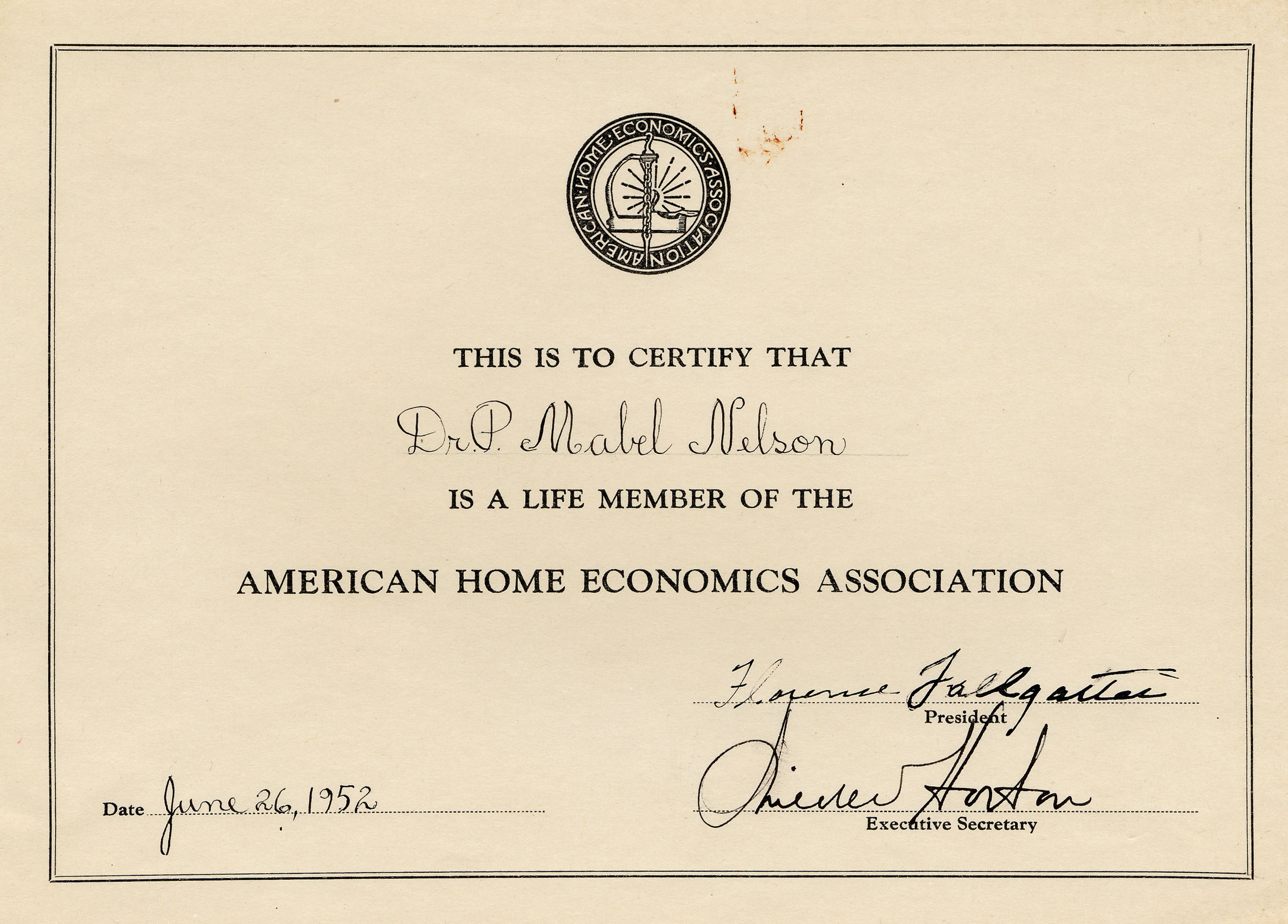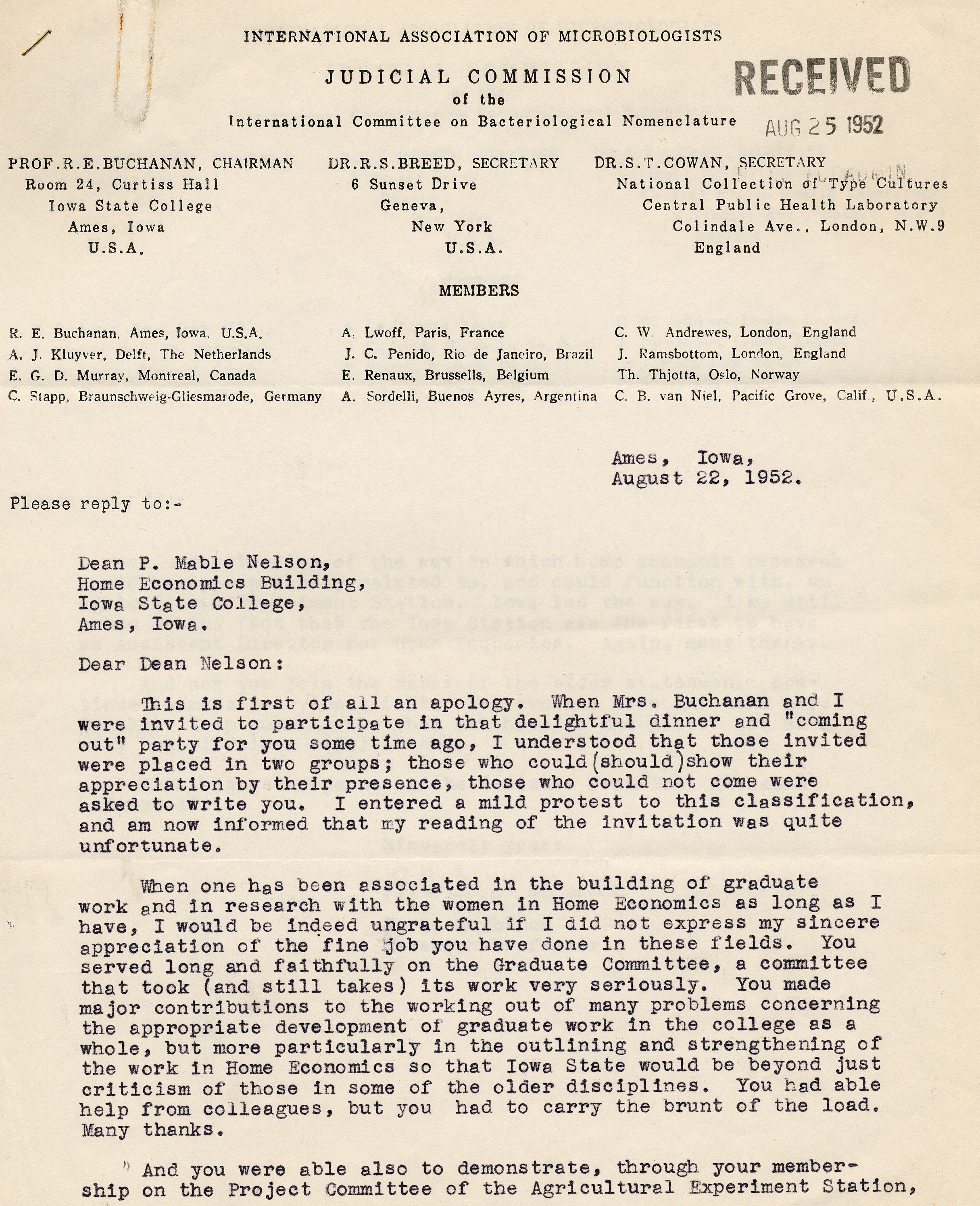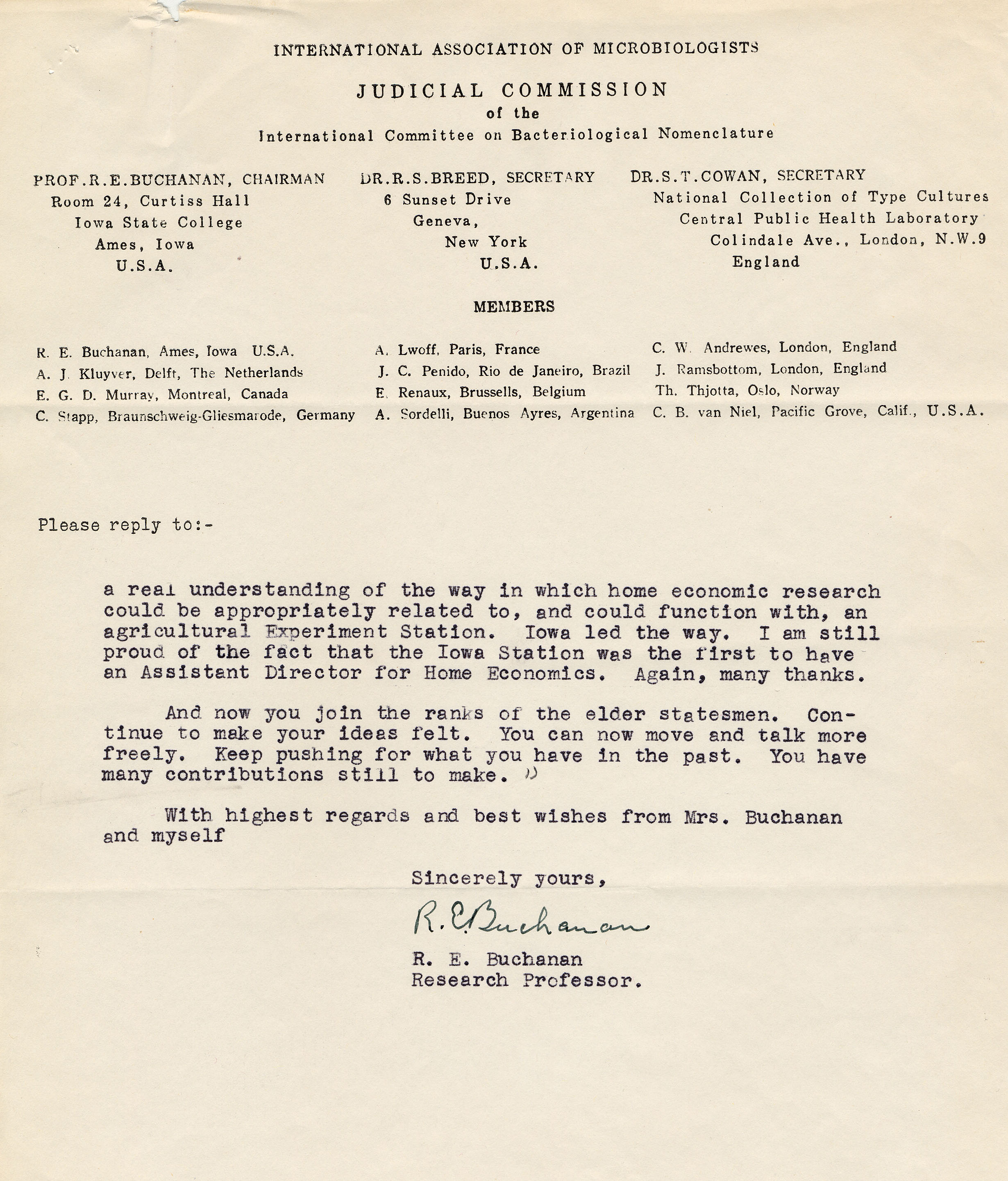|

Biography
Precious Mabel Nelson was born 9
November 1887 in Brookston, Indiana. Her family moved to
California when she was four years old, and she considered herself a
Californian. She received her B.S. (1915) and M.S. (1916) from the
University of California at Berkeley, and her Ph.D (1923) from Yale
University.
Dr. Nelson was
invited to continue her master's work in 1916, by Dr. Agnes Faye Morgan,
the new Head of the Science Division of the new Home Economics division
in the College of Arts and Sciences. In 1919, she accepted the
Currier Fellowship to work in physiological chemistry with Dr. Mendel at
Yale, and she eventually became his laboratory assistant prior to
earning her Ph.D. During her time at Yale, Dr. Nelson shared a
laboratory with Dr. Florence Seibert, who developed the skin test for
tuberculosis.
Other students of
Dr. Mendel's who went on to become leaders in Home Economics (and at
Iowa State*) included Mary Swartz Rose, Icie Macy Hoobler, Amy Daniels
(University of Iowa), Pearl Swanson*, and
Ercel Eppright*.
Dr. Nelson started
as the first Ph.D. faculty member (1923) in the Home Economics Division
and in 1926, she was named the head of the Foods and Nutrition
Department (1926-1944). In 1944, she was named the Dean of the
Division of Home Economics. In her research, Dr. Nelson
concentrated on the vitamin content of foods, and she developed analysis
methodology that improved the reliability of the statistics
recorded. During her time as Dean she focused on strengthening the
research programs of the College (she hired Dr.
Pearl Swanson and Dr. Ercel Eppright, both from the Yale Program),
as well as education and outreach nutritional programs through extension
and WOI Radio. She retired in 1952.
Based on: Dr.
Patricia Swan. "P. Mabel Nelson: Scientist and Academician
(1887-1963)
Forum, Volume 11 (2) 2000
|
|
|
Dr. Nelson belonged
to numerous organizations and societies, including Sigma Xi, Iota Sigma
Pi, the American Institute of Nutrition, the American Home Economics
Association, the American Dietetics Association, the American Chemical
Society, and the American Association of University Professors.
In Iowa, Dr. Nelson
belonged to the The Iowa Homemaker publication board, the Iowa
Federation of Women's Clubs, Iowa Home Economics, and the Iowa Farm
Safety Committee.
|
|
Presentation to the Medical
Association of Iowa (1946)
Dean Nelson: "Speaking of proteins, I have been interested in
the recent investigations of their relation to resistance against
disease. Animals subjected to prolonged protein under-nutrition,
exhibit a prolonged loss of capacity to make antibodies with which to
fight bacteria and the products of their action. Their anti-body
producing ability can be quickly restored by the ingestion of adequate
amounts of protein of good quality. A striking relationship was
also observed between the occurrance of low blood protein and this
susceptibility to infection."
|

A letter from Beth
Bailey McLean, an alumna and former faculty member of Iowa State
|
|
MacKay Hall, the
College of Home Economics
Building, ca. 1950
 Presentations
and Speeches by Dr. Nelson Presentations
and Speeches by Dr. Nelson
Nutrition in National Defense
Iowa Public Health Association
May 8, 1941
"Why is it a nation with the abundance of food found in the U.S.
should present the picture of malnutrition indicated from these military
service figures; i.e. approximately one-third of our citizens (45
million people) not up to standard. In spite of our abundance
there have been "hidden hungers" among the population, slow
and insidious, factors operating to destroy our efficiency." Introductory
Speech
4-H Annual Girls Club, 1947 "With
the increasing speed at which the world is moving and I am not referring
to this globe of ours, but rather to the increased speed at which we
travel, send letters, food, tomato plants, and even baby chicks by air,
hurry through the days from morning to night so we can hurry to church,
to the movies, or the park. So much hurry increases the hazards of
living...All of this means that the young women of today must find a job
in this changing world where she can acquire useful experience on a job
before marriage and thus be prepared to carry on should tragedy overtake
her family and cause a change of plans overnight." Radio
Program--WOI
Dairy Products from Standpoint of Homemaker
May 10, 1940 "It
is always a pleasure to talk about the place of dairy products in the
diet, because as a group of foods contributing to the health and well
being of human beings, they are hard to beat. In conclusion, let
me say, to be sure that your child has a quart of milk, that every adult
in the family has at least a pint, and this may be the sweet milk or one
of the soured milks, such as buttermilk. Then be sure each child
and each adult has at least three pats of butter. And don't forget
that no dessert is better than ice cream or cheese of some kind--there
are many interesting kinds of cheese, or you can alternate every few
days with the ice creams, custard pie, tapioca puddings and any other
good things that can be made of cream, milk, and eggs.
|



 Presentations
and Speeches by Dr. Nelson
Presentations
and Speeches by Dr. Nelson



